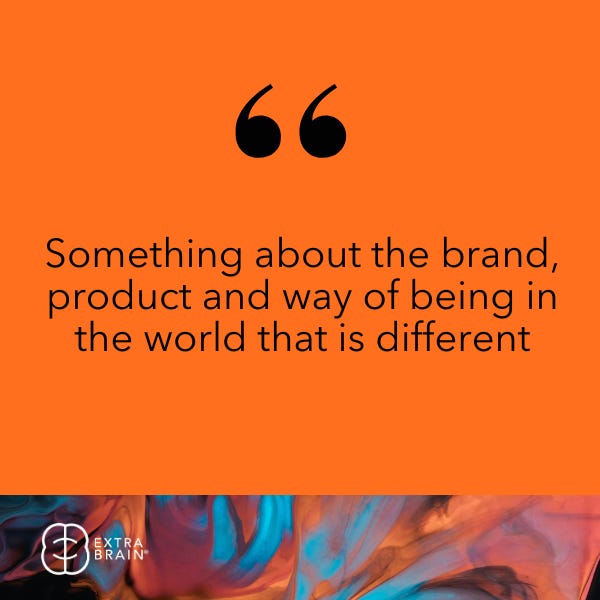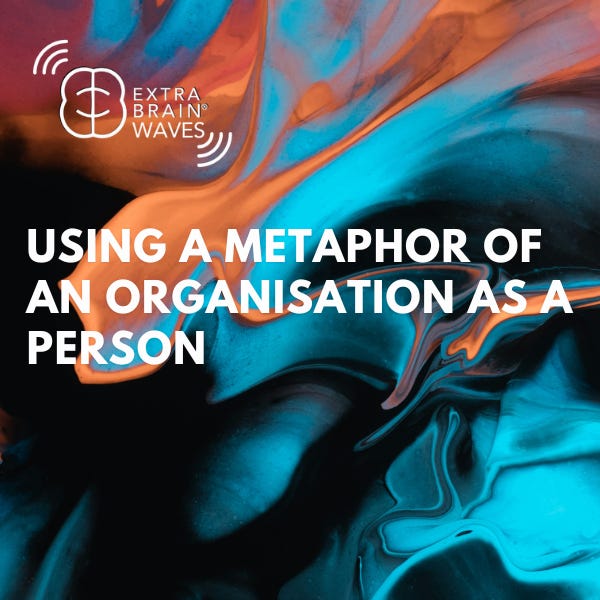Growing into yourself, as a founder and as a business.
Businesses come into being in many different ways. They might be going after a niche or gap in the market, solving a problem or disrupting the status quo. As well as carrying their own energy, they also carry the background, motivations and personality of their founder. In the early days this is often a positive, propelling force that not only drives the new venture, but gives it a sense of identity and values. The business becomes imprinted with the founder’s DNA.
But as the business grows, so is there a need for the founder to grow too. The team, and often the nature of the business begins to evolve, so the founder needs to stay alive to what is at the heart of the organisation, acting as a conduit of energy for the business.
The organisational consultant and psychoanalyst Anton Obholzer refers to an awareness of the primary task of an organisation “as the main institutional ‘ballast’ that keeps the organisation, both membership and leadership, steady.” Alistair Bain, the founder of the Australian Institute of Socio-Analysis extends this to define the primary spirit as what “breathes life into the organisation, the animating principle”.
This subtle, intrinsic energy is what Bo Burlingham sought to explore in his book Small Giants, exploring “companies that chose to be great instead of big”. Founders of these businesses all made this conscious decision, often when facing a pivotal point in their growth. For example Zingerman’s delicatessen, which rather than expanding to more branches, created a community of businesses around food in their local community. Or Anchor Brewing, a trailblazing microbrewery that deliberately kept its headcount to fifty to maintain its strong team culture, which it identified as pivotal to its identity and success.
Gary Erickson, the founder of Clif Bar referred to this animating principle as “mojo”, “something about the brand, product and way of being in the world that is different”.
Burlingham characterised these founders as “…building the sort of businesses they wanted to live in, rather than accommodating themselves to a business shaped by outside forces.” This was expressed by questioning the usual definitions of success, cultivating strong relationships with customers and community, building workplaces that cared for their team as fully rounded people.
What these rare, inspiring businesses and founders seem to illustrate is that whilst the spark of inspiration is a critical starting point in creating a business, it is the endeavour of every leader to maintain that spark by having a clear sense of who they are and what they want their business to be.
There’s no question this is tough. Typically, financial performance - and the ego boost that comes with growth - can become the dominant force. And as you start scaling, it’s not uncommon for the business, and the founder to lose their way. Often this is hidden as there’s a delay between growth and the business disconnecting with itself. But in time manifests itself, perhaps through external performance or internal conflicts.
I can relate to this from my own experience founding and leading Fantasy League through three decades. I created the business from a passion for football and a desire to do something I loved. This impetus served me well for the first few years, but soon fantasy football became a runaway train and I was involved with media deals with radio, newspapers and television. It was an exhilarating ride where I enjoyed the success, but over time the business moved from being about creating games to being about selling and technical delivery. The more we grew, the more I lost connection with those early, creative years – and crucially, with why I started the business.
On a few occasions I resisted the temptation to exit out of fear, but also out of a sense - or hope - that we could recapture our mojo. Over the course of the last ten years, we have managed to do this. But it wasn’t easy. It took us culling the media side of the business and me taking time to separate myself from the symbiotic relationship I had built with the business.
We’ve come out the other side, much smaller and just running the original, more intimate version of the game, how fantasy football was designed to be played. The business has returned to its core, and I am reconnected with it. But this hasn’t just about reconnecting with the past, there’s also a new connection with the older, grown-up version of myself. Last year we started a podcast where we invited some of our audience to talk about their leagues, many of which have been going since the 1990’s. It was only when I heard people describing the game as the glue that has bonded their group through decades of highs and lows; of births, deaths and marriages, that I understood our animating principle, and with it found a fresh connection to Fantasy League.
These days businesses and founders are more engaged with articulating values and mission and purpose from the outset, which is essential, meaningful work. Businesses are also more conscious and explicit about purpose, which is also a good thing. But building a business is a messy, organic process where you’re soon facing challenges and compromises that often take you away from your guiding principles.
Similarly, founders are only human, often putting their heart and soul into their businesses and unwittingly transmitting some of their unconscious material into their organisations. A founder’s fear of success, imposter syndrome or omnipotence is likely to be infused into the business as much as their vision, drive or creativity.
Whilst forging an early connection with values and mission can create a strong starting point, it is what happens in the messiness of the business and founder’s lives that shapes their understanding of who they are. With Fantasy League we travelled a journey from creating games, to licensing, to tech platforms, to fostering micro communities. Who knows where we might go next, now that we understand what we really do?
Tadashai Yanai, CEO of Uniqlo’s parent company has captured 23 principles, drawn from life experiences that he calls the “soul” of his company, stating that “without a soul, a company or a person is nothing more than an empty shell.”
If a founder can cultivate an ongoing awareness of themselves, their team and their business, they are able to evolve as well as grow, side by side.
This is about an openness to get to know yourself better; your talents, your limitations, what is uniquely yours, what matters most. By better relating to yourself, you’re more able to be “in conversation” with colleagues and teams, in turn building a culture of trust, respect and creativity.
As well as getting to know yourself, there needs to be a curiosity to understand your business in a more insightful way. This might be about engaging with challenging team dynamics to uncover something important being expressed about the organisation. Or it might be that by thinking more deeply about what it is you do, or what animates your business, you’re able to unlock a new way of thinking, perhaps opening up a new approach, product or strategy.
This work of building awareness needs to be seen as an ongoing practice for leaders and businesses. It connects you to a solid foundation and stimulates new insights, ensuring your business is more resilient and able to evolve. Whether a business is finding its feet, scaling, transforming or stagnating, this is important stuff.
Drawing on my experience as a founder and in recent years as a coach I’ve developed a framework called The Human Organisation to help businesses become more self-aware, so that they are more able to grow into themselves and fulfil their potential.
Using a metaphor of an organisation as a person, the framework allows teams to explore their business in terms of six human aspects; its body, mind, character, relationships, life and psyche. Through a series of processes, teams begin to surface insights that can impact strategy, transformation, positioning, culture, etc.
The American mythologist Michael Meade's explains the traditional concept of "growing down", as a process of maturation, of deepening one's connection to the roots of their being, rather than solely striving for outward success or upward mobility.
As businesses focus on growing upwards, it’s crucial for leaders to understand how this subtle but vital process of growing down creates not only a sustainable foundation, but the true richness in their organisation.






